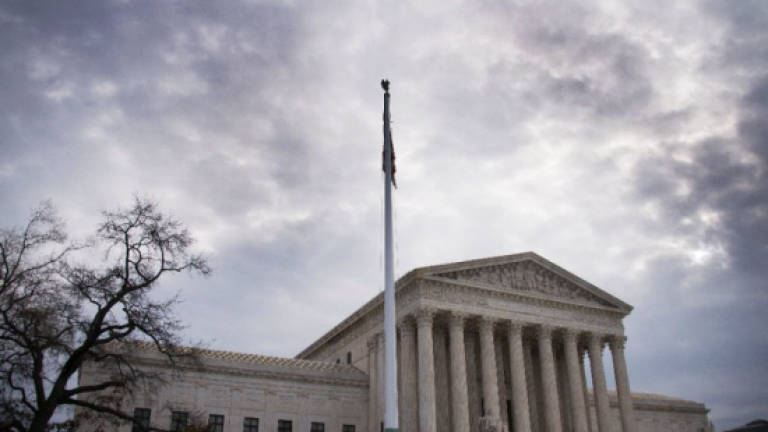US Supreme Court hears case of lawyer who defied client in murder trial

WASHINGTON: The US Supreme Court heard arguments Wednesday into whether a lawyer acted properly by entering a guilty plea against the wishes of his client in an unsuccessful attempt to save him from a death sentence.
In the weeks before Robert McCoy was to go to trial in Louisiana for a triple murder, his lawyer, Larry English, pressed him to plead guilty in order to avoid the death penalty and save his life.
When McCoy refused, English entered a guilty plea anyway, citing "overwhelming" evidence against his client.
The strategy, which sought to get McCoy life in prison instead of death, backfired: he was convicted and sentenced to death in 2011 for the 2008 murders of his estranged wife's mother, stepfather and son.
McCoy – who insists he is innocent – is now seeking a new trial on grounds that English went against his wishes.
The US Constitution's Sixth Amendment guarantees the right to "the assistance of counsel" for a defense in criminal prosecutions.
Seth Waxman, his new lawyer, argued before the court that the drafters of the Sixth Amendment, in the late 18th century, had strictly relegated the lawyer's role to assisting his client, who is free to choose his own plea.
"When a defendant maintains his innocence and insists on testing the prosecution on its burden of proof, the Constitution prohibits a trial court from permitting the defendant's own lawyer, over the defendant's objection, to tell the jury that he is guilty," said Waxman.
"If the defendant says I did not do X, I did not kill my parents, my family members, defense counsel may not affirmatively tell the jury that he did and ask that he be required to spend the rest of his life in prison."
Justice Stephen Breyer, however, suggested English was correct in using the tactic he did to try to save his client's life.
"A large percentage of the people that insist on representing themselves, particularly in death cases, are going to walk right into the death chamber," said Breyer, generally associated with the liberal wing of the bench.
"A lot of the people there are just not really capable of managing their own defence."
Louisiana Solicitor General Elizabeth Murrill, in her arguments before the court, also stressed that English's "ultimate objective is to try and do the right thing for his client, to defeat the death penalty and to save his life".
In a sworn statement in 2011, English recalled his decision to override his client, and enter a guilty plea.
"I met with Robert at the courthouse and explained to him that I intended to concede that he had killed the three victims," English said.
"Robert was furious and it was a very intense meeting. He told me not to make that concession, but I told him that I was going to do so."
English suggested McCoy truly believed that he was innocent, but that his client was deluded.
"Because of this delusion, Mr McCoy was incapable of rationally dealing with the evidence of his guilt," English added.
The lawyer as 'assistant'
In Faretta v. California, the Supreme Court found in a 6-3 ruling that means that the client is master.
The Sixth Amendment "speaks of the 'assistance' of counsel, and an assistant, however expert, is still an assistant," Justice Potter Stewart wrote in the majority opinion in 1975.
However, the Louisiana high court has allowed defense attorneys to concede their clients' guilt over their express objections in four other capital cases since 2000, according to a brief filed by the Louisiana Association of Criminal Defence Lawyers and the non-profit Promise of Justice Initiative.
A decision from the high court is expected in late June. — AFP